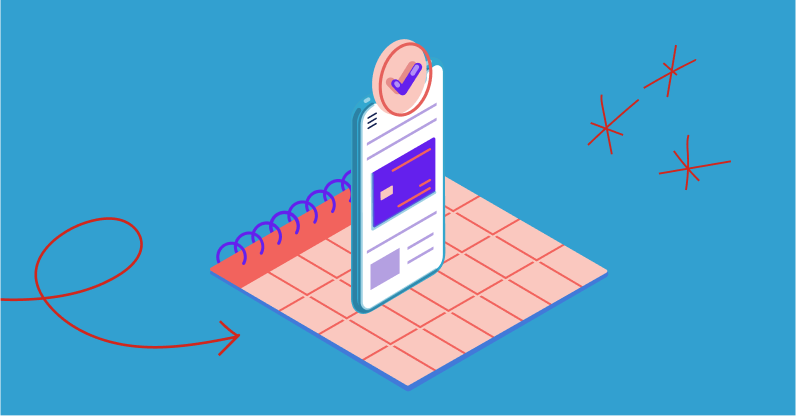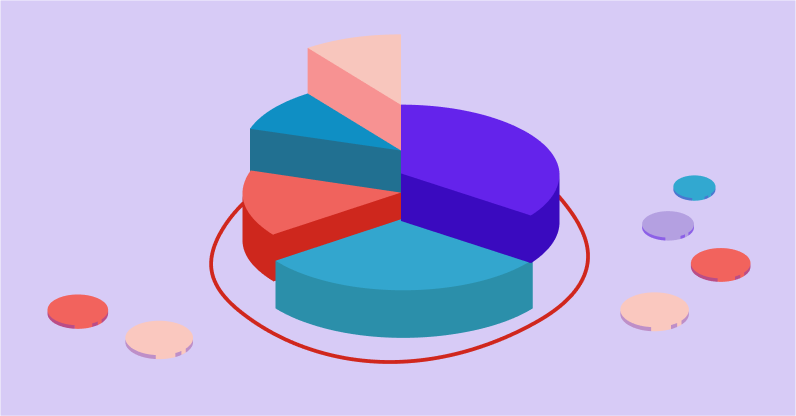Getting early direct deposit can help your financial strategy
Whether you get paid monthly, biweekly, or on some other payment schedule, it matters what day you get paid. Knowing exactly when you get paid helps you budget for expenses, set aside money for savings, and have money for yourself to enjoy.
Direct deposit is a convenience offered by most employers while early direct deposit (sometimes thought of as early pay) is an additional benefit – at no cost to you – provided by some banks and card providers.

What is early direct deposit?
Early direct deposit (sometimes thought of as early pay) is a feature that allows certain qualifying accounts to receive their pay up to two days earlier. This means the money deposited into your account or onto your prepaid debit card arrives earlier than when you normally would receive the deposit. Some people also use their prepaid debit cards or accounts to receive payments of government benefits, tax refunds and pensions, which could arrive up to four days early.
Early paychecks are a way of releasing funds to you as soon as your employer submits deposits, rather than waiting for the funds to clear on “payday.”
Depending on your financial institution or the type of prepaid debit card you have, early direct deposit may not be automatically activated, even if you already have direct deposit. You may need to enable early direct deposit in order to initiate the process.
Some card providers and institutions provide early direct deposit for free while others may charge a fee for this service. Certain eligibility requirements may also need to be met. Check the terms and conditions outlined by your prepaid debit card provider or bank.
Get Paid Up to Two Days Early1 with Wisely
Life doesn’t always wait until payday. Nor should you. Whether it’s a bill coming due or something you want ahead of the weekend, Wisely can get you access to your pay up to 2 days early1 - at no cost2 to you.
How does early direct deposit work?
Depending on your bank or prepaid debit card provider, you may need to enable early direct deposit (sometimes thought of as early pay). Money may show up on your card or in your account up to two days in advance. This means early direct deposit could be two days early or one day early, or less. Again, this depends on your card provider or institution as well as receipt of the payment file.
Benefits of early payments
Good money management is something that takes practice. Getting paid up to two days early has several benefits, including:
Manage emergencies
Having early direct deposit can help you avoid using credit cards to meet emergency expenses when they come up. By having early access to your funds, you can set aside money by using savings envelopes or simply have some extra cash on hand before your actual payday, in case you have an unexpected expense.
Help with budgeting
Sometimes early direct deposit feels like a nice “surprise” since you’re not supposed to get paid until a certain date. Having an influx of cash might provide relief when things are tight around upcoming “actual” paydays.
Avoid penalties
Sometimes bill payment schedules don’t line up with employer payment schedules. Getting your pay up to two days early may help you pay your bills on time (or early) and better plan for the next month. Getting in the habit of paying bills sooner when you can and avoiding late fees is critical to building healthy financial behaviors and creating lasting financial well-being.
Have peace of mind
Instead of having to wait for your money, getting paid early means having more financial control and flexibility – and less stress around money. Money, or lack thereof, is one of the biggest stressors for many people. Imagine having greater peace of mind around your financial life because your money could come in up to two days early!
Reduced reliance on credit
Sometimes timing of direct deposit is all it takes to make or break a financial behavior. Forgot about a bill that’s due and need to make a quick payment? With early direct deposit, the money may be there vs. having to wait until payday, or making the decision to pay a bill with a credit card. Getting paid early could help avoid going into debt while you’re waiting for your money to come in.
Opportunity for savings and investments
Early direct deposit could give you greater insight into your financial life. You’re seeing your money ahead of time and getting ahead of the game. Once you have your bills paid and monthly expenses handled, it’s easier to focus on saving – which is how legitimate, long-term financial stability becomes possible.

Strategies for managing your money
One way to strategize for monthly expenses is to write out all your primary household expenses and figure out which items will get paid from which pay period(s).
For example, let’s say you have large expenses like rent or a mortgage payment due at the beginning of each month. Early direct deposit may help ensure timely payment of those large expenses, but you’ll still need to make the remainder of your money stretch until your next paycheck.
Here are some additional strategies to consider:
- Think small. Set aside small amounts from each direct deposit to go towards future bill payments. This way you don’t have to pay the full amount of a bill out of one paycheck.
- Just ask. See if your lender(s) are willing to change what day your payments are due. Lenders are often accommodating when you explain your pay schedule and your commitment to paying your bills on time.
- Get organized. Move money from early direct deposit into savings envelopes or other savings channels. This can help you better budget for things like an emergency fund, medical expenses, even travel.
You might also find these money management tools useful:
By thinking through how your money gets distributed each month – and over the long term – you can leverage early direct deposit to best suit your financial needs.
How to set up early direct deposit
In order to get direct deposit early, you must have direct deposit set up first. To do this, your employer will need the routing and account number associated with your prepaid debit card or checking account. Many employers allow you to allocate a percentage of your paycheck to different accounts for better financial management. You might choose to distribute funds into different accounts in order to save, for example, or onto a prepaid debit card, such as one that’s used just for bill payments or everyday expenses.
Depending on your employer, you may be able to submit your direct deposit request online. Other companies may require a physical form.
Keep in mind, just because you have direct deposit already set up doesn’t mean you have early direct deposit set up. To enroll in early direct deposit, most financial institutions make it fairly easy. Simply log into your app or banking website and adjust your settings (terms and conditions may apply).
Afford Yourself Every Advantage
To turn on early direct deposit1 for Wisely, simply log in via your Wisely app3 or online. Go to Account Settings / Deposit Options. Toggle the button On for Early Direct Deposit.1
 By The Wisely Team
By The Wisely Team
Footnotes
-
- You must opt in to early direct deposit on mywisely.com or myWisely mobile app. Early direct deposit of funds is not guaranteed and is subject to payor’s support and the timing of payor’s payment instruction. Faster funding claim is based on a comparison of our policy of making funds available upon our receipt of payment instruction with the typical banking practice of posting funds at settlement. Please see full disclosures on mywisely.com or myWisely app. Please allow up to 3 weeks for funds to be loaded to the card after initial setup of direct deposit to your card. Additional Identification verification is required. ↩
- Please see the list of all fees for applicable fees. ↩
This content is for informational purposes only and may have been derived, with permission, from a third party. While we believe it to be accurate as of the date of publication, it does not constitute the rendering of legal, accounting, tax, or investment advice or other professional services by ADP and it is being provided without any warranty whatsoever. Please consult with appropriate professionals related to your individual circumstances.
The Wisely Pay Visa® is issued by Fifth Third Bank, N.A., Member FDIC or Pathward®, N.A., Member FDIC, pursuant to a license from Visa U.S.A. Inc. The Wisely Pay Mastercard® is issued by Fifth Third Bank, N.A., Member FDIC or Pathward, N.A., Member FDIC, pursuant to license by Mastercard International Incorporated. The Wisely Direct Mastercard is issued by Fifth Third Bank, N.A., Member FDIC. ADP is a registered ISO of Fifth Third Bank, N.A., or Pathward, N.A. The Wisely Pay Visa card can be used everywhere Visa debit cards are accepted. Visa and the Visa logo are registered trademarks of Visa International Service Association. The Wisely Pay Mastercard and Wisely Direct Mastercard can be used where debit Mastercard is accepted. Mastercard and the circles design are registered trademarks of Mastercard International Incorporated.
ADP, the ADP logo, Wisely, myWisely, and the Wisely logo are registered trademarks of ADP, Inc.
Copyright © 2025 ADP, Inc. All rights reserved.
By clicking 'Leave', you will exit myWisely and be directed to a third party website which may have different privacy and security settings.
